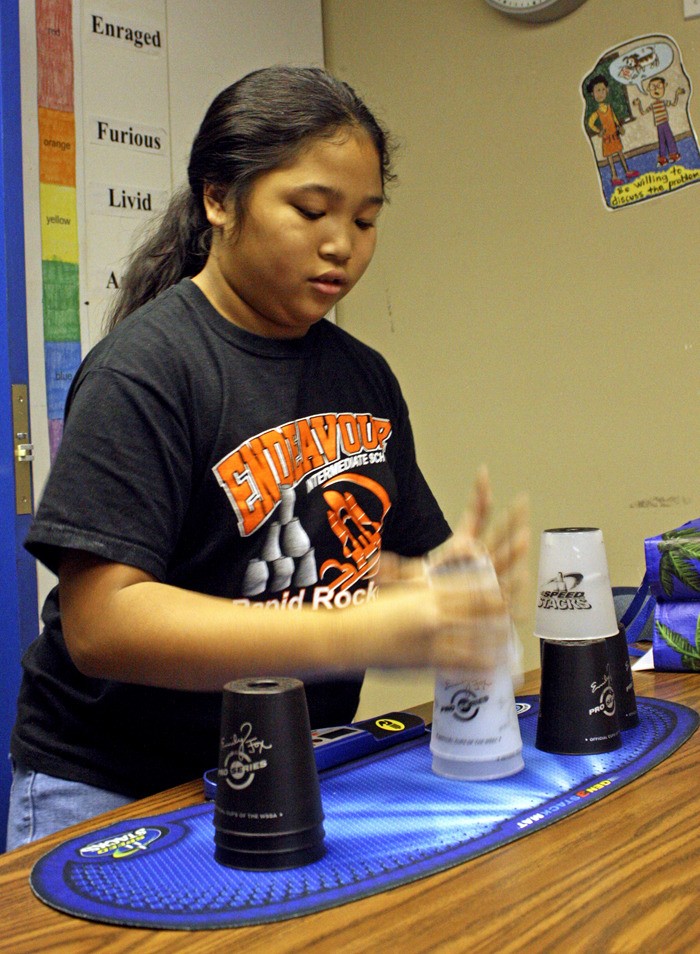Gabby Rivera’s hands are a blur as she manipulates nine plastic stacking cups, arranging and breaking them down.
Rivera, a fifth-grader at Dick Scobee Elementary, is so fast that the clicking sound each cup makes as it touches the tabletop blends into the next one, producing a constant machine gun hum as she arranges the cups into several patterns.
Braaaaaaaappp.
Rivera, 11, who has been stacking for just four years, reached the pinnacle of her sport in March, setting a world record in the 3-3-3 cup stacking for girls ages 9-10.
“It was during the stack of champions at Auburn High,” Rivera said. “I got the female world record (in my age group) for the 3-3-3. It was 2.08 seconds.”
The time shattered her previous best of 2.43 seconds.
“It was exciting. Lots of people gave me high-fives and stuff after,” she said.
Rivera got her start in the sport at the age of 7, courtesy of her father, Henry Rivera, a physical education teacher in Fife.
“My dad brought home a DVD from school, and I just got hooked on it,” Rivera said. “I was just blown away by how fast they were going. So I took out some plastic cups and started.”
The next day, Rivera’s father ponied up the cash for her first set of official stacking cups.
Known as sport stacking, the game was invented in the early 1980s by Wayne Godinet, a program director for the Boys and Girls Club of Oceanside, Calif. The sport centers on sets of uniformly-sized cups, placed upside down on a flat surface, stacked in one of three configurations and disassembled quickly. The goal is to complete a stacking cycle in as little time as possible.
It wasn’t long before Rivera became adept at stacking.
“I went to the Auburn High competition in 2009 and I actually took first-place in all the events,” she said. “That’s when I figured out I was really good.”
Rivera took a step to the next level in 2010, when she competed at the U.S. Nationals Colorado Open in Denver.
“It was breathtaking,” Rivera said. “I made it to the Stack of Champions and finished in the top 10.”
Rivera practices an hour a day. “But if I get hooked, I’ll do up to six hours,” she said.
With a world record in hand, Rivera hopes to make the U.S. National team and compete internationally.
Rivera says the sport is thrilling and educational “because you go left to right, and that’s how the brain works. It’s how you read,” she said. “It also helps with hand-eye coordination.”
As for her personal record of 2.08? Rivera says it should stand, for now.
“(Until) I can go faster,” she said. “I’m at about 1.9 seconds in practice.”


